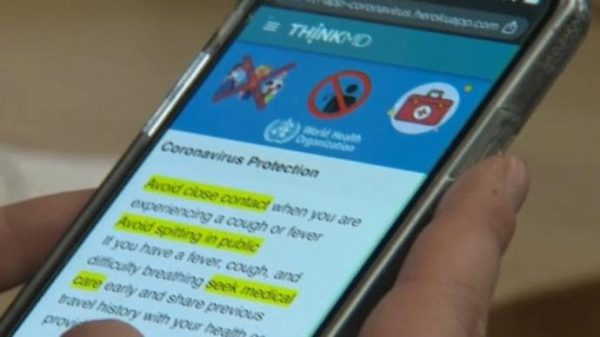Area technology companies help out during coronavirus pandemic – WCAX
BURLINGTON, Vt. (WCAX) As coronavirus concerns plague the United States, technology companies are doing their part to connect potential patients with health care services.

Many primary care offices in our region have been using telehealth for years, but they say utilizing the technology universally is more critical now than ever before.
Officials say medical professional-patient interactions through telecommunication are a nice option to have in a time where there’s a lot of uncertainty.
Appletree Bay Primary Care in Burlington has been using telehealth technology since 2018 when the nurse practitioner-led office collaborated with the University of Vermont Medical Center to launch a pilot program testing out video visits.
The original idea was to limit the number of patients coming through the doors who don’t actually need to be seen in person. Now, nurse practitioners like Jennifer Allaire say telehealth is preventing potentially sick patients from spreading coronavirus.
She says it also keeps medical professionals healthy, so they can do their jobs.
Ethan Bechtel, the CEO of the company OhMD, says it’s technology like his Burlington-based company’s that gives patients access to care similar to traditional medicine.
“Communication is really important in health care. I would argue probably the most important thing in health care,” said Bechtel.
Since 2016, OhMD has operated out of the Vermont Center for Emerging Technologies, providing text messaging services for pediatricians and family medicine practices, more efficiently triaging young patients and their parents.
“It’s the same types of questions a patient would ask if they were able to get their practice on the phone,” said Bechtel.
In the wake of the coronavirus pandemic, he anticipates telehealth will remain popular.
Right now, Bechtel says providers are using OhMD to figure out if people need to be tested for COVID-19 and do the test by meeting them in the parking lot
“We get to start using the technology that can really help people, and I think that’s only going to continue from here on out,” said Bechtel.
Providers say it’s crucial the state ensures rural areas have internet. They also say telehealth could never replace traditional medicine, rather it is just supplemental.
OhMD offering free services to providers who don’t have telehealth technologies.
ThinkMD is another startup that operates out of the Vermont Center for Emerging Technologies. The company’s Barry Finnette says he hopes his technology will help medical professionals and ordinary citizens navigate this pandemic.
ThinkMD is a service accessible on a smartphone, through a URL-driven application. One of the technology’s key features is a questionnaire that guides users on if they should seek medical treatment. It prompts users for general history like age and gender. From there, the user relays how they’re feeling physically and if they’ve had physical contact with someone infected.
Based on the answers about upper respiratory symptoms and recent exposures, the technology draws a conclusion as to whether that individual should get tested for coronavirus.
All of that information is then organized so government officials and medical professionals can see how the virus is spreading and who it’s affecting most.
“Currently the technology is being used by some nurses and doctors, but mostly by community health care workers, pharmacists, school teachers, and it’s also, we have a product that goes directly to consumers, as well. So yes, this is something that any individual could use,” said Dr. Finette.
All of those people using ThinkMD right now are just trying it out. Dr. Finette and his team at ThinkMD haven’t launched a widely available product yet. Right now, they’re working with national and international health organizations and officials to make it accessible worldwide.
These are just some of the few startups proving technology plays a major role in coronavirus response.






